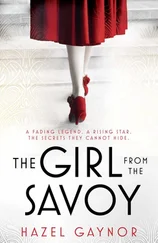This is a valid point, and of course I totally support it—who doesn’t? I just don’t want to be the anti-Polanski poster child, trotted out at anyone’s convenience. For one thing, I still crave some measure of privacy, and would fight for any victim to maintain his or her own. For another, my case is too complicated and nuanced to make it a good example. I resent being appropriated for other people’s campaigns and causes. If you’re serious about accomplishing something good, start from a good place: secure the cooperation of those you want to help; don’t exploit them.
A few days ago, I was on the YouTube website and stumbled upon a funny television commercial that happened to be directed by Polanski. It was a parody of a fragrance commercial, in which Natalie Portman and Michelle Williams, dressed as French courtesans, look like they’re going to get romantic, and then get into a catfight over a perfume called “Greed.” It was kind of like a dopey Saturday Night Live skit, and so I was about to just go on to something else, when sandwiched between the random commentary about the commercial was this: “The girl who claimed Polanski sodomized her is a liar and a fraud. So are those other two people who claimed the same thing in 2010.” Nothing to do with the commercial. Nothing to do with anything. But it’s like a Pavlovian response to the words “Roman Polanski.” That response is either “He’s a pedophile” or “She’s a whore.”
It is 2013, and I still find I have to steel myself whenever I see his name.
There is no end in sight to the controversy surrounding Roman Polanski. Partly it’s because the tincture of time does not magically wash away the stain of rape. But also because there is no end to controversy about the act itself—what it is, when it happens, who gets to define it. The most intimate of human exchanges—sex, and its grotesque deviations, like rape—will be parsed and argued about forever. And political affiliations do not necessarily predict opinions about the subject. On The View, the very liberal Whoopi Goldberg famously argued that what happened to me might not be “rape-rape.” I took no offense, but I had to laugh out loud. Oh my God, Whoopi, your audience is not going to be thrilled you said that! And they weren’t. But even conservatives were offended when Republican stalwarts starting throwing around terms like “legitimate rape” and “honest rape” during the 2012 election season. As it turns out, rape is not an issue that lends itself to easy and predictable ideological analysis.
I cannot stop thinking, too, about the sexual norms of the 1960s and 1970s versus today. A New Yorker piece about the Horace Mann School abuse scandal I discussed earlier quotes Gary Alan Fine, a 1968 graduate and sociologist at Northwestern University. “This was the late sixties, and what we now think of as rape or sexual assault didn’t quite mean the same thing in that age of sexual awakening,” Fine said. “If you’re a powerful person and you do things that others respond to because of your power, you may convince yourself that they really love you and this is between two equals.” Love was not the issue in my case, but his point is well taken. The powerful are used to being wanted. They take it as their due.
In 2009, after the release of Wanted and Desired, Polanski wrote me this note.
Dear Samantha,
I watched Marina Zenovich’s documentary for the second time and, I thought, I should write you this note.
I want you to know how sorry I am for having so affected your life. Watching you in the film, I was impressed by your integrity and your intelligence. And, you are right, they should give your mother a break! The fault was mine, not your mother’s. I hope the pressure of the media has alleviated and that your family brings you much happiness.
Best wishes, Roman Polanski
This note was written when Polanski had children of his own. Maybe being the father to a young teenager put the events of the film in perspective for him. It didn’t change anything for me, but I could see the effect it had on my family, my mom in particular. It meant so much to them, and it was a relief to see them let go of some of that pain and anger.
In so many ways I’ve been a very lucky woman. For one thing, I was never taught that sex was bad—it was a natural thing you were meant to look forward to someday. Whether it was the permissive times I grew up in, the attitudes of my parents, or just my own nature—I never felt dirty or deeply ashamed because someone had sex with me against my will. I may have felt kind of stupid, but I never felt there was anything fundamentally wrong with me. This is not a small thing; for a rape victim, it may be a matter of life and death.
Recently I was reading about Elizabeth Smart, the girl who at fourteen was abducted from her Salt Lake City home, held captive in the mountains, and abused for nine months. When she spoke on a panel at Johns Hopkins University, she explained that one of the key factors in why she didn’t try to escape her attacker was that she had been taught, through abstinence-only education, that she was worthless after being raped—that she was not fit to return to society.
“I remember in school one time, I had a teacher who was talking about abstinence,” Smart told the panel. “And she said, ‘Imagine you’re a stick of gum. When you engage in sex, that’s like getting chewed. And if you do that lots of times, you’re going to become an old piece of gum, and who is going to want you after that?’ Well, that’s terrible. No one should ever say that. But for me, I thought, ‘I’m that chewed-up piece of gum.’ Nobody rechews a piece of gum. You throw it away. And that’s how easy it is to feel you no longer have worth. Your life no longer has value.”
I agree with Smart. As a society we’re constantly giving young girls tips on how to stay safe: don’t go out late at night, dress modestly, don’t go out alone, don’t drink, and don’t have premarital sex. While I certainly understand why we tell women these things, and even think we can make certain commonsense choices that keep us from having sexual experiences we’ll regret, we can’t send the message that when something as grotesque as a rape happens, you deserved it.
The lasting effect of my experience with Polanski has not been trauma, whether psychic or physical. It’s been a desire to maintain and nurture real connection—with friends, family, husband, even exes. (I’m friendly with everyone I’ve ever been involved with, I think—they’re all like characters in the book of one’s life, and you wouldn’t want to put down the book without knowing what happens at the end!) And perhaps my experience has also created in me an empathy, and sometimes even a desire to reach out to women who have been the victims in highly publicized criminal cases. It pains me to think what they’re going through, besides the actual experience of the crime. I remember, for example, hearing that the young woman who accused Kobe Bryant received death threats. She was the bad one for telling the police what happened?
This year I felt compelled to write to the sixteen-year-old girl raped by the two high school football players in Steubenville, Ohio. (I don’t know who she is, of course; I sent it to her via Mike DeWine, the attorney general of Ohio.)
March 26, 2013
Dear “Jane Doe”:
My name is Samantha Geimer, and in 1977, I was also Jane Doe. The massive media coverage surrounding you touched me and I wanted to reach out to you, understanding what is like to be at the center of a high profile rape case at a young age.
I was raped by Roman Polanski, just 2 weeks before my 14th birthday and ended up at the center of an intensely high profile case, that has followed me to this day, due to the nature of Roman’s celebrity.
Читать дальше












